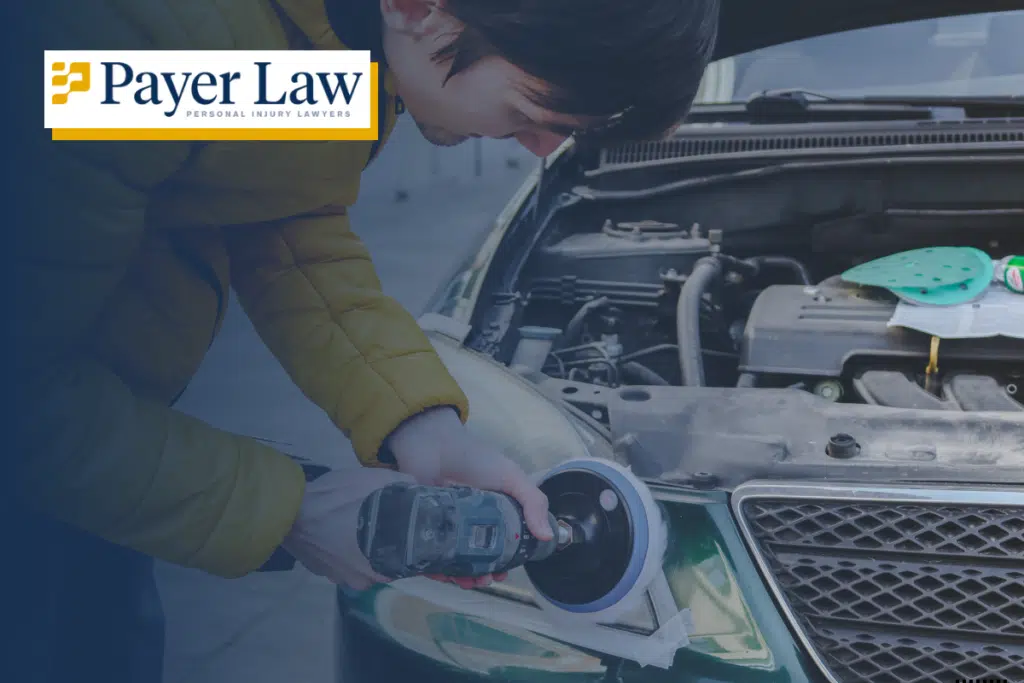Driving at night requires complete visibility, not just for you but also for other drivers on the road. If one of your headlights isn’t working, you might wonder if driving that way is illegal in Florida. The short answer is yes; Florida law requires all vehicles to have two functioning headlights. Understanding the rules and risks can help you stay safe, prevent car accidents, and avoid penalties.
Florida Laws on Vehicle Headlights
In Florida, the law is clear about the requirements for vehicle headlights. Florida Statutes establish the following:
- Two headlights required: Every motor vehicle must be equipped with at least two headlights, one on each side of the front of the vehicle.
- Visibility distance: Headlights must illuminate objects at least 450 feet ahead.
- Use during specific times: Headlights are required from sunset to sunrise and during rain, smoke, or fog.
Driving with only one functioning headlight violates these regulations and can result in a traffic citation.
Risks of Driving With One Headlight
Driving with a missing or faulty headlight isn’t just illegal; it’s also dangerous. Here are some risks you might face:
- Reduced visibility: With only one headlight, your ability to see obstacles, pedestrians, or animals decreases significantly.
- Confusion for other drivers: Other drivers might mistake your vehicle for a motorcycle, which can lead to misjudgments on the road.
- Increased accident risk: Poor visibility and confusion can lead to collisions, endangering you and others.
These risks highlight why it’s important to ensure both headlights are functioning properly.
Penalties for Driving With One Headlight in Florida
If you’re caught driving with one headlight in Florida, you may face:
- Traffic citations: This is considered a non-moving violation, which can result in a fine.
- Vehicle inspection: An officer might require you to fix the headlight and provide proof of the repair.
- Increased insurance rates: Accumulating traffic violations can lead to higher insurance premiums.
It’s cheaper and safer to fix the headlight promptly rather than risk these penalties.
What To Do If Your Headlight Goes Out
If you notice that one of your headlights isn’t working, take the following steps:
- Replace the bulb: Often, the issue is simply a burned-out bulb that can be easily replaced.
- Check the fuses: A blown fuse might be the culprit; consult your vehicle’s manual to locate and check it.
- Consult a professional: If you’re unsure what’s wrong, a mechanic can diagnose and fix the issue.
It’s both safer and more cost-effective to address the issue promptly rather than risk these penalties and the potential for an accident.
Preventative Measures To Avoid Headlight Issues
To prevent headlight problems, consider these tips:
- Regular inspections: Check your headlights periodically, especially before long trips.
- Keep them clean: Dirt and grime can dim the light; clean the headlight covers regularly.
- Upgrade if necessary: Consider using longer-lasting bulbs or upgrading to LED headlights for better durability.
By taking care of your vehicle’s headlights, you ensure better visibility for yourself and others on the road while staying compliant with traffic laws. This simple maintenance can go a long way in promoting safety and avoiding unnecessary fines or accidents.
A Trusted Attorney Can Help if You Receive a Citation
If you’ve been cited for driving with one headlight, you might feel frustrated or unsure of your options. An experienced attorney can explain your rights, assist with your defense, and work to reduce any penalties. Consulting a legal professional can provide peace of mind and potentially save you money. Most attorneys in this area of the law also offer free case reviews, so you may be able to receive initial legal advice at no cost.
If you need help or advice, contact Payer Law Personal Injury Lawyers to schedule a free consultation with a personal injury lawyer.
Contact Our Orlando Car Accident Law Firm For Help Today
If you’ve been injured in an accident in Orlando, Florida, and need legal help, contact our experienced car accident lawyers at Payer Law Personal Injury Lawyers to schedule a free consultation today.






